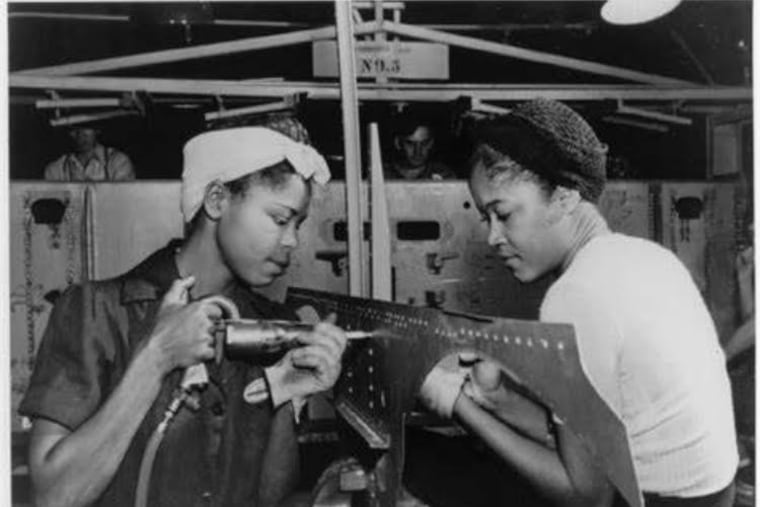On Memorial Day, remember the Black Rosies, the forgotten heroes of World War II | Opinion
As America went to war, African Americans answered the call on factory floors and shipyards, and recruiting offices across America in a country that treated them as second class citizens.

Memorial Day gives us an opportunity to pay our respects and honor the men and women who made the ultimate sacrifice for the freedoms that we enjoy today. World War II was our largest and costliest war, second only to the Civil War. It was during this war that African Americans demanded full participation on a scale that had not seen before.
As America went to war to fight Imperial Japan and Nazi Germany, African Americans answered the call on factory floors and shipyards, and recruiting offices across America in a country that treated them as second class citizens and little more than manual labor robots. But as a price for their service, they demanded equal justice under the law and the opportunity to be treated fairly. Serving as defense workers, nurses, and WAC’s (in Women’s Army Corps), the story of African American women deserves our heartfelt appreciation on this Memorial Day.
Being Black and a woman in the 1940s was a double whammy that presented its own unique obstacles and dangers to navigate. Black women found few opportunities beyond domestic work or working in cotton fields under the rigid system of sharecropping in the early decades of the 20th century. World War II accelerated the migration of African Americans out of the agrarian South to the industrial North. The war opened doors for them that in many cases they had to pry open and put down door stoppers in place to keep open.
By 1941, the American war industry was kicking into high gear as the United States supplied Britain and the Soviet Union critical war supplies under the Lend-Lease Act. Sensing the importance of keeping these two nations in the war against Germany, Roosevelt persuaded Congress to provide this critical aid. After over a decade of economic depression, WWII arguably was the best jobs program in American history, bringing the unemployment rate down to almost zero by 1944. The problem for many African Americans was that the defense industries openly discriminated against them.
Civil Rights activists such as Mary McLeod Bethune and A. Phillip Randolph brought to President Franklin Roosevelt’s attention these practices. Randolph even threatened a march on Washington. Knowing the huge PR disaster this could bring on the United States, this threat compelled Roosevelt to sign Executive Order 8802 which banned racial discrimination in the defense industry. Even though the order had very little enforcement power, it did open the door to one million African American workers — 600,000 of them women.
Known as “Black Rosies” and often assigned the dirtiest jobs, Black women worked in factories doing sheet metal work, assemblers of munitions and explosives, shipyards, railroads, and in administrative offices. Despite these advances, women workers in general were paid less than men, with Black women being the lowest compensated. Some factories still stubbornly refused to hire them and in some cases, white workers walked off the job to protest their presence.
But working in the war industries paid well. A typical domestic worker made roughly $7 per week. In southern states it was as low as $3 to $4 a week. War jobs paid as much as $35 a week. African American women jumped at this chance. Many spoke fondly of their service on the home-front and contribution to American victory in World War II. As Ruth Wilson, one of the “Black Rosies” from Philadelphia, exclaimed, “It made me feel good because my husband was over there in Europe fighting, and here I was doing my part.”
African American women also were admitted into the Women’s Army Corps after the insistence of First Lady Eleanor Roosevelt and Mary McLeod Bethune. Segregation would still be the prevailing policy, but out of this came the storied 6888th Central Postal Directory Battalion.
In February 1945, the first part of this Battalion sailed for England. They faced an important mission. There was a backlog of undelivered mail of more than 17 million letters and packages to be sorted through and delivered to the appropriate serviceman. The women understood how important receiving letters were to the morale of the troops, with their motto being “No mail, low morale.”
As we recognize and memorialize the sacrifices that are men and women in uniform made, let us never forget the important contributions of the “Black Rosies.”
Dante R. Brizill, a Philadelphia native, has more than 17 years of teaching experience in Delaware and Maryland. He is the author of Dorie Miller: Greatness Under Fire and Red Ball Express: Greatness Under Fire.